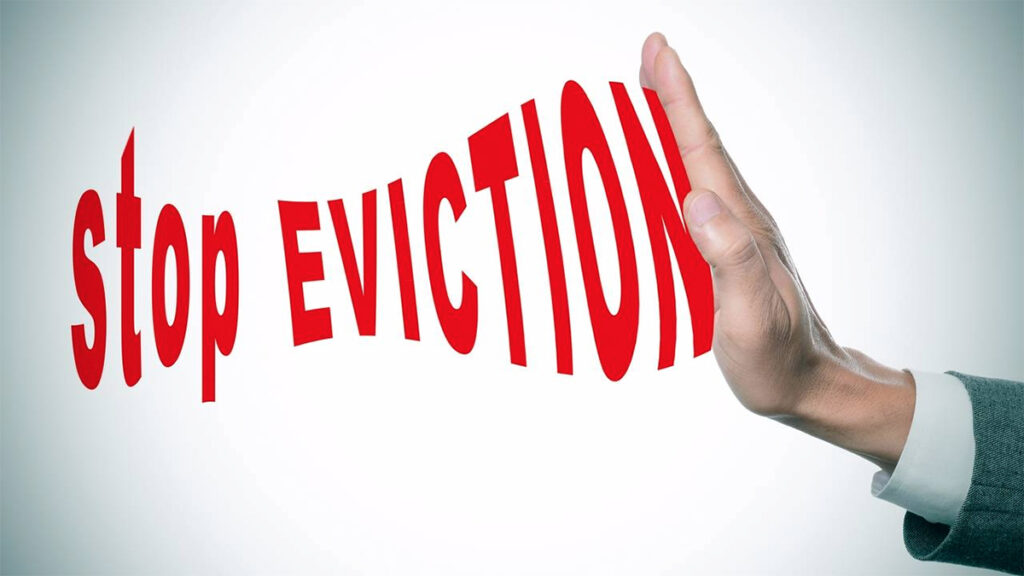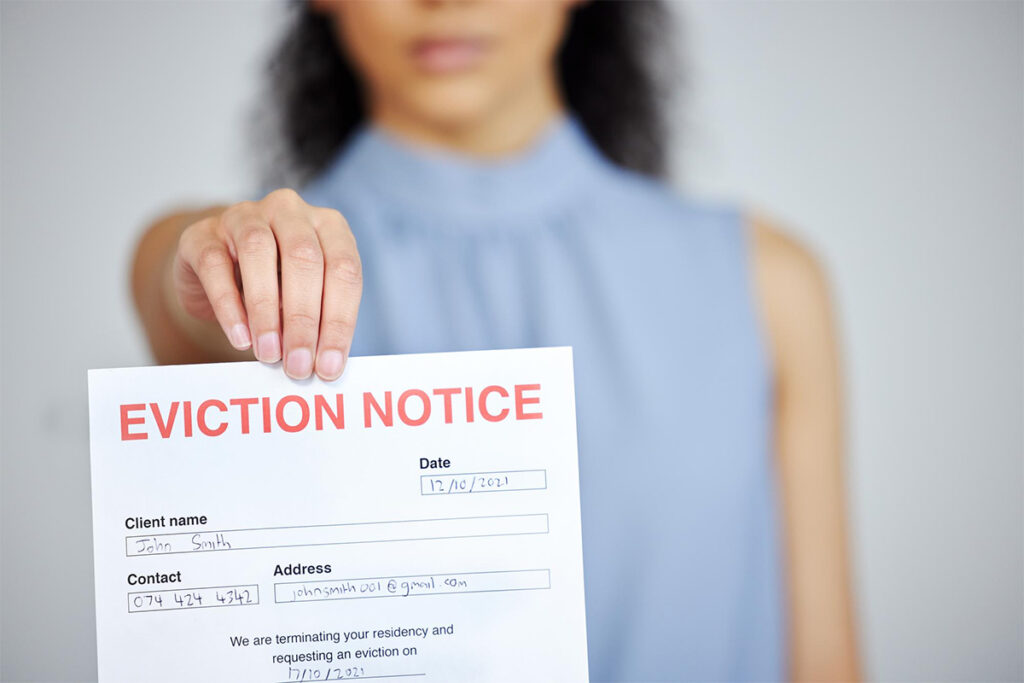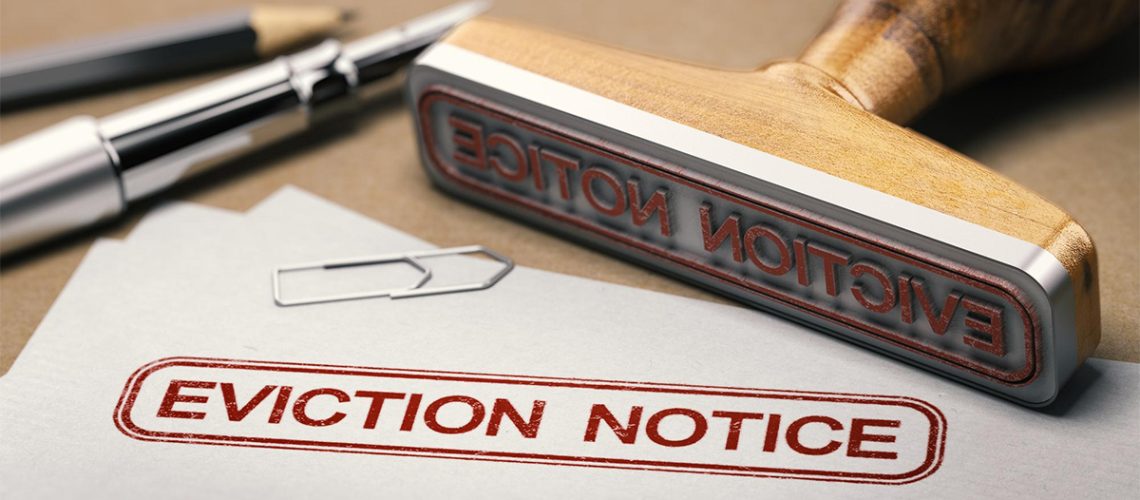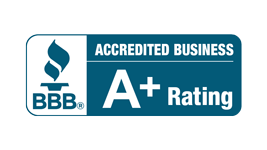Facing Eviction in Columbus
Facing eviction in Columbus can be an incredibly challenging experience, but there are avenues of support and resources available to you. From navigating local tenant laws to seeking legal advice, it is worth the time to learn about the available options.
What is Eviction?
Eviction is the legal process of removing a tenant from a rental property. This typically occurs when a tenant fails to pay rent, violates the terms of the lease, or otherwise breaches their rental agreement. [1]
The process of eviction typically starts with the landlord providing the tenant with a notice to vacate the property. This notice will specify the reason for the eviction and give the tenant a certain amount of time to move out. [2]
If the tenant does not comply with the notice, the landlord can then file a lawsuit to have the tenant evicted through the court system.
Once the lawsuit is filed, the tenant will have the opportunity to respond to the eviction notice and present their case in court. If the court rules in favor of the landlord, a sheriff or other law enforcement officer will then carry out the eviction, physically removing the tenant and their belongings from the property.
Can I Stop Eviction if I File for Bankruptcy?
Chapter 7 bankruptcy can temporarily delay the eviction process by triggering an automatic stay. This legal protection prohibits creditors, including landlords, from taking any further collection actions, including eviction proceedings.
The landlord can petition the bankruptcy court for relief from the automatic stay, allowing them to proceed with the eviction. If the landlord can prove that you have no equity in the property and that the eviction would not violate state law, the court may grant the request, and the eviction can proceed.
Chapter 13 bankruptcy may offer a more sustainable solution to stopping eviction. In this type of bankruptcy, you can propose a repayment plan that includes catching up on past due rent payments over a period of three to five years. As long as you adhere to the terms of the repayment plan, the automatic stay will remain in place, preventing the landlord from evicting you.
Filing for bankruptcy does not automatically absolve you of your responsibility to pay rent. Even if the eviction process is temporarily halted, you will still be required to make ongoing rent payments to the landlord. Failure to do so can result in the landlord being able to resume the eviction process.

What Are My Rights as a Tenant Being Evicted?
You have the right to receive proper notice of eviction. Landlords are typically required to provide written notice of eviction, stating the reason for eviction and the date by which you are required to vacate the property.
The notice period is typically around 30 days. If your landlord does not provide proper notice, you may have grounds to challenge the eviction in court. You also have the right to contest the eviction if you believe it is unjust or unlawful. You can do this by filing a formal objection with the court and presenting any evidence or documentation that supports your case. The eviction may be halted or delayed if the court rules in your favor.
Landlords are not allowed to use “self-help” eviction methods, such as changing the locks or shutting off utilities, in an attempt to force a tenant out. If your landlord engages in these illegal tactics, you have the right to take legal action against them.
In the unfortunate event that you are ultimately evicted from your rental property, you have the right to retrieve your personal belongings and have a reasonable amount of time to do so. Your landlord must also follow specific procedures for disposing of any belongings left behind.
What Help is Available if I Am Being Evicted?
One of the first steps to take if you are being evicted is to reach out to your local housing authority or community organization. These organizations often have resources and programs in place to provide support and assistance to individuals facing eviction. They can help you understand your rights as a tenant, navigate the legal process, and connect you with financial resources to help you stay in your home.
You can also communicate with your landlord or property management company. They may be willing to work with you on a payment plan or other arrangements to avoid eviction. Being proactive and open about your situation can sometimes lead to a mutually beneficial solution.
If you are struggling to make ends meet and facing financial hardship, government assistance programs are available to help with housing costs. Programs such as Section 8 vouchers, low-income housing, and rental assistance programs can provide much-needed financial support to help you stay home.
Many communities have legal aid organizations or pro bono legal services that can provide free or low-cost legal representation and advice to tenants facing eviction.

Are you facing the stressful situation of eviction in Columbus, Ohio?
Contact the Richard West Law office today for a free consultation and take the first step towards resolving your eviction case and securing your housing. We’re here to help you every step of the way.
Sources:
[1] Franklin County Municipal Court. (n.d.). https://municipalcourt.franklincountyohio.gov/Courts/Eviction-Court
[2] LibGuides: Ohio Law Time Lines: Eviction. (n.d.). https://fclawlib.libguides.com/Courtprocesses/evictions




